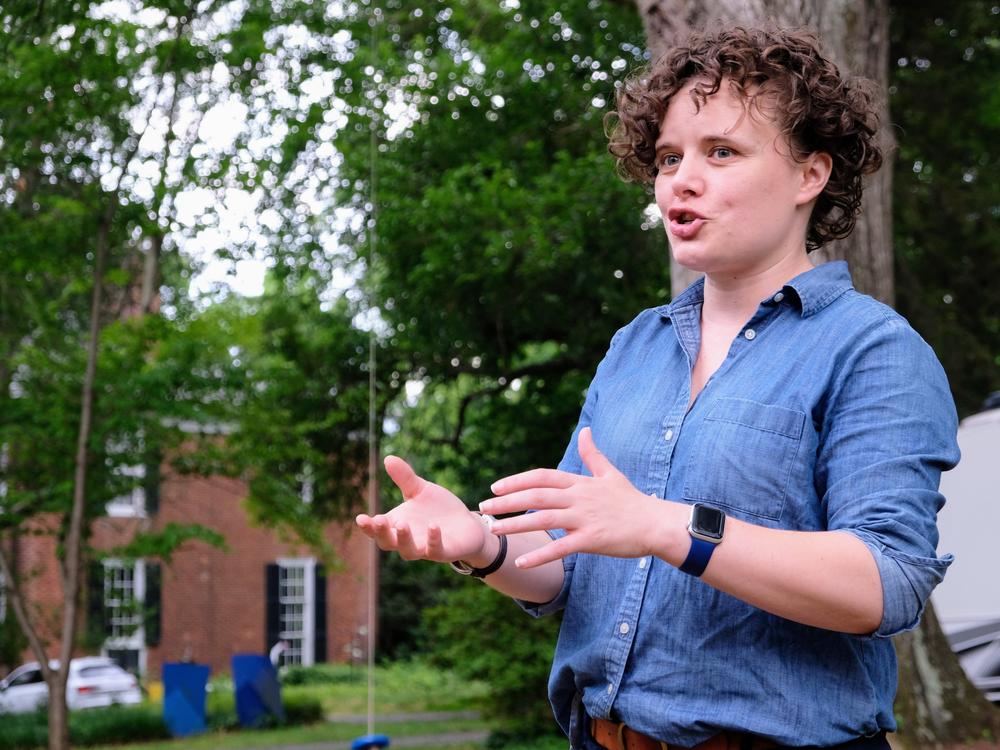Section Branding
Header Content
For Democrats trying to retake Virginia legislature, fiery primaries are first hurdle
Primary Content
CHARLOTTESVILLE, Va. – It's been nearly two years since Virginia Democrats' two-year dominance of state politics came to an abrupt end at the hands of Republican Glenn Youngkin, who won control of the governor's office and helped his party retake Virginia's House.
This year, with all 140 seats of the legislature up for grabs, Democrats see an opening to hold their control of the state Senate, turn the tide in the House of Delegates and blunt Youngkin's agenda for the rest of his term. But first, they're sorting out their own differences in expensive and fierce primaries spurred by a scrambling of the state's legislative voting maps.
Unlike the politicians who previously drew Virginia's maps, the independent experts drew the new boundaries from scratch, stripping incumbents of their old districts.
The result: a wave of more than two dozen retirements and a handful of combative primary races. In some cases, veteran, white, male Democratic state senators have found themselves in tight primary challenges, from younger candidates, women or people of color running to their left.
Redistricting sets up intense competition
Virginia Del. Sally Hudson, who represents Charlottesville in Virginia's lower chamber, has been holding low-key house parties for months to drum up support ahead of her primary against veteran state Sen. Creigh Deeds for the newly redrawn Senate District 11.
"This is currently the hottest race in Virginia," Hudson tells 20 or so adults and a gaggle of their kids seated at her feet at a recent gathering. "This is the highest-turnout primary on the state Senate map right now."
Hudson is a 35 year-old University of Virginia economics professor who has represented the area in Virginia's House since 2020. Now she's making a bid for a new, bright blue Senate district against Deeds, who has been in the statehouse almost as long as Hudson has been alive.
A number of white, male senators across the state are all facing well-funded challengers, including Northern Virginia's George Barker, Dave Marsden and Jeremy McPike, as is Richmond Sen. Joe Morrissey.
Hudson argues the state Senate needs a shakeup that's already come to Virginia's House during former President Donald Trump's first term, when a wave of more diverse Democrats propelled the party to several victories. Women now outnumber men in the House caucus.
"We've got a much more diverse set of perspectives around the policymaking table," Hudson says. "I think it's time for us to start doing to the Senate what we've done to the House."
The cost of competition
The intraparty battles come with a cost. The races are expensive; both Deeds and Hudson spent more than $1 million since April 1, in some cases for negative TV ads and mailers. And some party activists fear it could fracture the party at the very moment it needs to unite against Gov. Youngkin, who is shattering fundraising records in a push to flip the currently-divided legislature red.
But the churn is important for Hudson supporters like Tanishka Cruz. She says the Senate's Democratic caucus hasn't embraced the kind of systemic reforms related to poverty and immigration she'd like to see.
"We need a variety of voices—people with different life experiences—bringing new voices to the Senate, because right now it's wholly unrepresentative," Cruz says.
Deeds is a self-described "country boy" who grew up on a farm hunting in a Democratic family. He's a familiar face at a community center in Esmont, a half hour south of Charlottesville, where he spent a recent evening talking to a rare breed: rural Democrats.
"We've got to figure out how to get people reengaged with the Democratic Party," says Deeds, who recently moved to Charlottesville to run in the new district after representing the old, mostly rural district that stretched from reliably liberal Charlottesville to conservative counties on the West Virginia border.
Deeds was first sworn in as a lawmaker in 1992 and mounted runs for attorney general in 2005 and governor in 2009. He's best known for his work related to mental health, particularly in the aftermath of the death by suicide of his son.
Deeds' seniority comes with tangible perks: key committee assignments and relationships he argues are necessary to grease the wheels of the legislative process.
He argues he's "a known quantity that's been doing work for a long time, doing it at a high level."
It's a compelling sell to supporters like Wren Olivier, who says she sometimes gets asked why she's not supporting the woman in the race.
Hudson "won't have the committee assignments, she won't be able to move legislation through the Senate and the General Assembly as Sen. Deeds will be able to do," Olivier says.
Moving forward
Hudson and Deeds have different explanations for why Democrats faltered in 2021. Deeds singles out Gov. Youngkin's vast personal wealth and ability to fundraise. Hudson says Republicans did a better job connecting with everyday issues facing voters rather than concentrating on Trump.
Still, Ken Plum, who is the second longest-serving member of Virginia's House in its 400-year history, says Democrats have evolved significantly from when he first arrived in 1978. Back then, what he describes as "ultra conservative, right wing, racist" Dixiecrats dominated the legislature.
Plum is retiring this year and has ambivalent feelings about the primaries. He says some of this year's races are about personal ambitions. At the same time, he says the party needs to keep adding fresh voices. "I think that's probably healthy for the party and for the state in the long haul," Plum says.
Copyright 2023 VPM. To see more, visit VPM.


